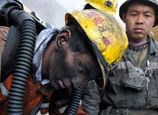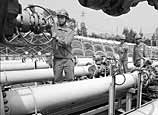
Following the protests, local urban management authorities have called on 18 companies, authorized by the government to carry out sanitation work, to give "adequate salaries and other subsidies" to workers, as required by the law, Huang said.
Li Tinggui, a former head of Guangzhou Urban Management Committee, said most sanitation companies had won their government contracts with low tenders.
"But the low bids have led to low pay for sanitation workers," said Li, also a deputy to the Guangzhou people's congress.
"The companies have tried to use less workers and facilities to do more cleaning work as the demand for sanitation has risen," Li said.
He added that some government authorities have also failed to honor their promises of pay rises for workers, many of whom had worked considerable amounts of overtime two years ago when the city was engaged in efforts to win the title of "national civilized city".
"Companies have paid little attention to pay rises for workers after being hired as contractors for the city's sanitation work," Li said.
During a protest on Jan 10, workers demanded overdue overtime pay of 1,000 yuan, dating back to the Guangzhou Asian Games more than two years ago.
"Along with increasing the investment in workers, the government should also strengthen the supervision of sanitation companies," Li said.
A worker surnamed Xu told the Southern Metropolis Daily that he had been waiting for overtime pay of 1,000 yuan for two years.
"We hope the government will fulfill its promise of a pay rise.
"As far as I know, the salary of sanitation workers are double in other big cities such as Beijing, Shenzhen and Shanghai," Xu said.

















 Living in Beijing on monthly income of 10,000 yuan
Living in Beijing on monthly income of 10,000 yuan


![]()
